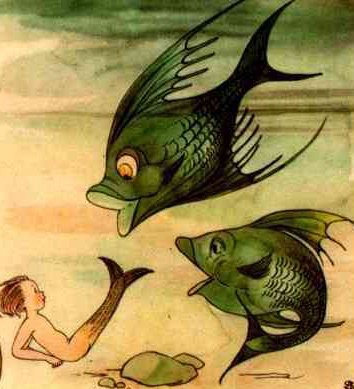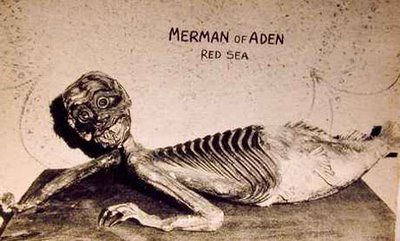Apolutrosis

Faith is our earth, in which we take root;
Hope is the water through which we are nourished;
Love is the air through which we grow;
Gnosis is the light through which we become fully grown.
-- Gospel of Philip 79:25-31, in NHL 147
APOLUTROSIS
April 18
Beyond the baptism in water
Another in fire: Yet even then
One more, leaning back into
The wildest mystery of all,
Where You and I are one. Only
Then will you see the Master smile
And find welcome in the dance
Which sings the round of God,
No more a bruited slave
To death’s too-harbored life
Where free men chain themselves
To shores bereft of surf or salt
Or moon. No more shards of
Shattering light, no more hearts
Like withered promenades.
No more baptized but pure
Blue plunge between God’s knees
Become the wet part of Her seas.
***
Apolutrosis:
“What Irenaeus found most distressing was that those who flocked to the groups gathered around teachers like Ptolemy often heard in these meetings that the baptism all Christians receive in common is, in fact, only the first step in the life of faith. Such teachers explained to newcomers that just as John the Baptist baptized with water those who repented, when they themselves first confessed faith in God and in Jesus, they too received, in effect, the ‘baptism of John’ to cleanse them from sin. But such teachers also pointed out how, according to the gospel accounts of Mark, Matthew, and Luke, John the Baptist prophesized that Jesus himself would baptize his followers ‘with the holy spirit and with fire.’ They pointed out, too, Jesus’ saying that he had ‘another baptism with which to be baptized,’ and they explained that this means that those who advance on the spiritual path are to receive that second baptism.
“Furthermore, they said, this higher baptism marks a major transition in the initate's relationship with God. In their first baptism, believers have pledged to serve as Lord the God whom they revere as creator, and fear as divine lawgiver and judge. But now, Ptolemy and his disciples explained, having progressed beyond that level of understanding, they are to come to God as Father, as Mother, Source of all being -- in other words, as One who transcends such images. Thus Ptolemy invites those who previously saw themselves as God’s servants -- or, more bluntly, his slaves -- to come to understand themselves as God’s children. To signal their release from slavery to become, in Paul’s words, God’s own children and heirs, Ptolemy calls the second baptism apolutrosis, which means ‘redemption’ or ‘release,’ alluding to the judicial process through which a slave becomes legally free.”
-- Eileen Pagels, Beyond Belief: The Secret Gospel of Thomas

AMBITION
Jack Gilbert
from Refusing Heaven
Having reahed the beginning, starting toward
a new ignorance. Places to become,
secrets to live in, sins to achieve.
Maybe South American, perhaps a new woman,
another language to not understand.
Like setting out on a raft over an ocean
of life already well lived.
A two-story failed hotel in the tropics,
hot silence of noon with the sun
straying through the shutters.
Sitting with his poems at a small table,
everybody asleep. Thinking with pleasure,
trailing his hand in the river he will
turn into.
***
TEAJACK
2005
Salt and foam careen the surge
which carries me toward You
upon this lurch of fin and tooth
and pale white spermacetti fire.
Teajack is my name, tar of
every Southern coast, a brawn
of blue maraud. In my cup
of passage I was brined
in whiskey’s womb, then
hung a year upon a sea-dam’s
stake where noctals washed my
mind for good; wakened
like a conch upon a shattered beach,
I began these spiral sing-songs home.
I ride from shore to shore upon
the backs of uddered waves,
a stone skipped across the sea
from bed to bed to bed of blue.
Each night torn from Your abyss
sings the starry depth of God
before He ripped his name
pure from Your vocal chords.
Each morning wakes with
dew on these hands, the sweat
of sweet breasts which milked
now brighten this next shore
with a pearly, sated light.
Here is the undiscovered
country I never thought I’d find, that
home inside the wildest heart
I always meant to ride but feared.
I begin here, a bluer salt, to harrow
all found in that water, even to the
ninth most fatal wave.
The crash of surf booms
down the shore like the welcome
of an old friend at the door,
of shark and queen composed:
the womb inside my pen’s blue sense
now shouting in wild resonance.

ISIS RISING
From The Golden Ass: The Transformations Lucius by Apuleius, transl. Kennedy (1998)
‘It was not yet midnight when I awoke with a sudden start to see the full moon just rising from the sea-waves and shining with unusual brilliance. Now, in the silent secrecy of night, was my opportunity. Knowing that this greatest of goddesses was supremely powerful; that all human life was ruled by her Providence; that not only all animals, both tame and wild, but even lifeless things were animated by the divine power of her light and might; that as she waxed and waned, so in sympathy and obedience every creature on earth or in the heavens or in the sea was increased or diminished; and seeing that Fate was now seemingly satiated with my long tale of suffering and was offering me a hope, however late in the day, of rescue: I decided to beg for mercy from the awesome manifestation of the goddess that I now beheld. At once, shaking off my sluggish repose, I jumped up happily and briskly, and eager to purify myself I plunged into the sea. Seven times I immersed my head, since that is the number which the godlike Pythagoras has told us is most appropriate in religious rituals, and then weeping I uttered my silent prayer to the all-powerful goddess.
“Queen of heaven, whether you are Ceres, nurturing mother and creatrix of crops, who in your joy at finding your daughter again set aside the ancient acorn, fodder for wild beasts, and taught man the use of civilized food, and now fructify the ploughlands of Eleusis; or whether you are Venus Urania, who in the first beginnings of the world by giving birth to Love brought together the opposite sexes and so with never-ending regeneration perpetuated the human race, and now are worshipped in the sanctuary of sea-girt Paphos; or whether you are Phoebus’ sister, who by relieving women in labour with your soothing remedies have raised up many peoples, and now are venerated in your shrine at Ephesus; or whether you are Proserpine of the fearful night-howling and triple countenance, you who hold back the attacks of ghosts and control the gates of hell, who pass at will among the sacred groves and are propitiated with many different rites; you who brighten cities everywhere with your female light and nourish the fertile seeds with your moist warmth and dispense according to the motions of the Sun an ever-changing radiance; by whatever name, in whatever manner, in whatever guise it is permitted to call on you: do you now at last help me in this extremity of tribulation, do you rebuild the wreck of my fortunes, do you grant peace and respite from the cruel misfortunes that I have endured: let there be an end of toils, an end of perils. Banish this loathsome animal shape, return me to the sight of my friends and family, restore Lucius to himself; or if I have offended some power that still pursues me with its savagery and will not be appeased, then at last let me die if I may not live.”
Such were the prayers that I poured forth, accompanied with pitiful lamentations; then sleep once more enveloped my fainting senses and overcame me in the same resting place as before. I had scarcely closed my eyes when out of the sea there emerged the head of the goddess, turning on me that face revered even by the gods; then her radiant likeness seemed by degree to take shape in its entirety and stand, shaking off the brine, before my eyes. Let me try to convey to you too the wonderful sight that she presented, that is if the poverty of human language will afford me the means of doing so or the goddess herself will furnish me with superabundance of expressive eloquence.
First, her hair: long, abundant, and gently curling, it fell caressingly in spreading waves over her divine neck and builders. Her head was crowned with a diadem variegated with many different flowers; in its centre, above her forehead, a disc like a mirror or rather an image of the moon shone with a white radiance. This was flanked on either side by a viper rising sinuously erect; and over all was a wreath of ears of corn. Her dress was of all colours, woven of the finest linen, now brilliant white, now saffron yellow, now a flaming rose-red. But what above all made me stare and stare again was her mantle. This was jet-black and shone with a dark resplendence; it passed right round her, under her right arm and up to her left shoulder, where it was bunched and hung down in a series of many folds to the tasselled fringes of its surface shone a scattered pattern of stars, and in the middle of them the full moon radiated flames of fire. Around the circumference of this splendid garment there ran one continuous garland all made up of flowers and fruits. Quite different were the symbols that she held. In her right hand was a bronze sistrum, a narrow strip of metal curved back on itself like a sword-belt and pierced by a number of thin rods, which when shaken in triple time gave off a rattling sound. From her left hand hung a gold pitcher, the upper part of its handle in the form of a rampant asp with head held aloft and neck puffed out. Her ambrosial feet were shod with sandals woven from palm-leaves, the sign of victory. In this awesome shape the goddess, wafting over me all the blessed perfumes of Arabia, deigned to answer me in her own voice.
“I come, Lucius, moved by your entreaties: I, mother of the universe, mistress of all the elements, first-born of the ages, highest of the gods, queen of the shades, first of those who dwell in heaven, representing in one shape all gods and goddesses. My will controls the shining heights of heaven, the health-giving sea-winds, and the mournful silences of hell; the entire world worships my single godhead in a thousand gods; the native Athenians the Cecropian Minerva; the island-dwelling Cypriots Paphian Venus; the archer Cretans Dictynnan Diana; the triple-tongued Sicilians Stygian Proserpine; the ancient Eleusinians Actaean Ceres; some call me Juno, some Bellona, those on whom the rising and those on whom the setting sun shines, and the Egyptians who excel in ancient learning, honour me with the worship which is truly mine and call me by my true name: Queen Isis.”’


<< Home